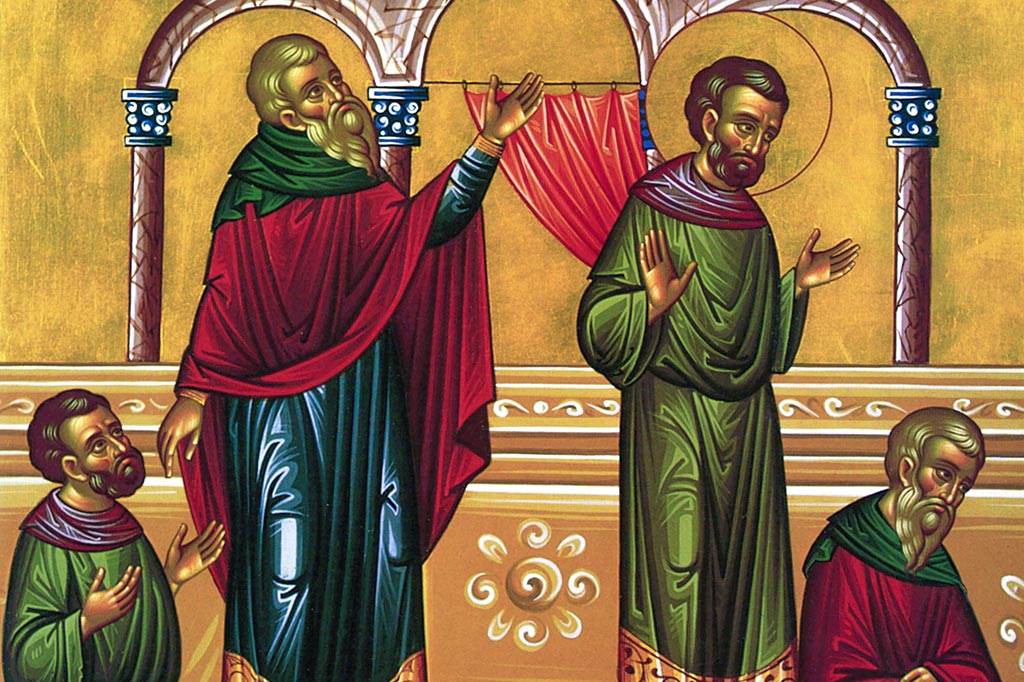Soon afterward He went to a city called Nain, and His disciples and a great crowd went with Him. As He drew near to the gate of the city, behold, a man who had died was being carried out, the only son of his mother, and she was a widow; and a large crowd from the city was with her. And when the Lord saw her, He had compassion on her and said to her, “Do not weep.” And He came and touched the bier, and the bearers stood still. And He said, “Young man, I say to you, arise.” And the dead man sat up, and began to speak. And He gave him to his mother. Fear seized them all; and they glorified God, saying, “A great prophet has arisen among us!” and “God has visited His people!”
Luke 7: 11-16 (Gospel of the 3rd Sunday of Luke)
There are three times in the Bible when Jesus raises someone from the dead. It occurs in Luke 8:41-56 when He raises the daughter of Jairus. It occurs again in John 11: 1-44 when He raises Lazarus. And it happens in today’s Gospel. There are instances before Christ where prophets and holy people did miraculous things. But this is the first time that someone had raised a person from the dead. There are many people in recorded history who have exercised power over the living. Kings, dictators, presidents, and emperors are examples. But Jesus raised someone from the dead, showing that He has authority over the living and the dead.
The reaction of the people is actually fairly remarkable. The city of Nain is in Galilee, which was mostly Gentile territory. We are not told in the Gospel reading whether the man who was deceased was a Jew or a Gentile. But there most certainly were many Gentiles in the area. For people to declare Jesus to be a prophet was pretty profound. After all, this was not the temple elite declaring Jesus a prophet but very common people. And while the Jewish leadership would later condemn the works of Jesus as not being works of God (i.e. especially when He healed on the Sabbath), the people of Nain were quick to glorify God and attribute the miracle to “God visiting His people.”
God creates little miracles in our lives constantly. It may not seem that way because His miracles are not all as profound as raising someone from the dead. Yet is we believe that “every good endowment and perfect gift is from Above, coming down from the Father of Lights”, as we discussed previously, then the good and uplifting things that happen to us are not coincidences or good karma or anything like that, but gifts that either come directly from God or come from God through others.
In Acts 1:8, shortly before He ascended into heaven, Jesus said to His disciples, “You shall receive power when the Holy Spirit has come upon you; and you shall be my witnesses in Jerusalem and all Judea and Samaria and to the end of the earth.” There is a power that comes through the Holy Spirit to all those who accept Christ. Most people don’t think about our faith in terms of spiritual power. Either they view power from a secular view—money or fame equals power. Or they view power from a humble point—I am in no way worthy of any power that comes from Above.
The mature Christian harnesses the power of God in his or her own life for good. He doesn’t acknowledge that his power is his own, nor does he shy away and say he is not worthy of God’s power. In John 1:12, we read “But to all who received Him, who believed in His name, He gave power to become children of God.” And with this power comes both responsibility and accountability. As I mentioned, the mature Christian harnesses the power of God that is cultivated through a life of prayer, through a life of living in the Holy Spirit, and uses it not only in his or her own life but in the lives of others for good.
From a practical perspective, we all face unique problems and challenges. Do we face them alone? When we are struggling with something, do we take it to the Lord in prayer and ask for Him to strengthen us? Do we look for others who need strengthening and allow the Lord to work through us for their good? These are the challenges and the joys of Christianity, to cultivate the power of God through prayer, and to use it as a force for good, to help others and to bring God to others.
O Christ, we praise in song Your saving Passion, and Your resurrection do we glorify. (First Resurrectional Praise, 1st Tone, Trans. By Fr. Seraphim Dedes)
Experience the power of God in worship this Sunday and in prayer every day!
